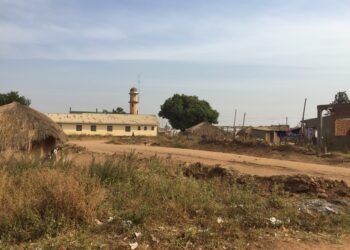Abuja, Nigeria / Yaoundé, Cameroon / Abidjan, Ivory Coast — In a continent where the median age is under 20, two African leaders in their 80s and 90s Alassane Ouattara of Ivory Coast and Paul Biya of Cameroon have just extended their presidential mandates following October elections, reigniting a long-standing debate about Africa’s generational gap in leadership.
Election Results and Controversies
In Cameroon, 92-year-old Paul Biya won his eighth term with 53.66% of the vote, according to official results. His main opponent, Issa Tchiroma Bakary, claims he actually won with 54.8%, citing partial voter data. Protests erupted in cities like Douala and Garoua, with clashes reported between demonstrators and security forces.
In Ivory Coast, 83-year-old Alassane Ouattara was re-elected with 89.77% of the vote. Critics highlight that major opposition figures, including former President Laurent Gbagbo, were barred from contesting, raising concerns about the competitiveness of the election. Low voter turnout has fueled frustration among young Ivorians who feel excluded from the political process.
A Generational Gap
Cameroon’s median age is 18, and Ivory Coast’s is 19. Both presidents have ruled for decades Biya since 1982 and Ouattara since 2011. The age difference between leaders and the majority of citizens often more than four decades has become a source of public frustration.
Social media has amplified these sentiments. Hashtags like #YouthVsOldGuard have trended on platforms such as X (Twitter) and TikTok, with young Africans sharing memes, videos, and commentary on the disconnect between leadership and the concerns of the continent’s youth.
In Cameroon, university students staged small protests in Yaoundé and Douala, calling for fair elections and generational change. While mostly digital-first, these movements reflect widespread dissatisfaction with leadership that doesn’t mirror the demographics of the population.
Voices from Social Media
-
@nanotshi: “Congratulations to the Cameroonians for entrusting their future to someone who will not be part of it.”
-
@OpinionOrb: “An eighth term at 92. Should there be age or term limits for world leaders?”
-
@dramadelinquent: “Africa and their love of old Presidents.”
-
@lweiiiii: “92-year-old Paul Biya re-elected? Who votes for that? Something’s seriously wrong.”
Not Just an African Issue
While Africa’s youthful populations make the generational gap more striking, aging leaders are a global phenomenon. China’s Xi Jinping and Russia’s Vladimir Putin, both in their 70s, have retained power for long periods. Even in established democracies, debates about age and leadership, such as around U.S. President Joe Biden, influence public discourse.
However, Africa’s situation is extreme: the age gap is coupled with limited opposition, creating a challenging environment for generational change.
Why Old Presidents Stay in Power
Several factors explain the political longevity of leaders like Biya and Ouattara:
-
Strong influence over electoral commissions, security forces, and state media.
-
Legal frameworks and constitutional changes that allow term extensions.
-
Disqualification of major rivals, leaving weak political alternatives.
-
Supporters argue that continuity ensures stability in countries with histories of unrest.
This combination of political machinery, legal adjustments, and controlled opposition allows aging leaders to maintain power even as youth populations grow frustrated.
Looking Ahead
With Africa’s median age below 20, the tension between old leadership and young populations is unlikely to disappear. The debate over leadership renewal, succession planning, and generational representation is becoming central to the continent’s political future.
Biya and Ouattara are not just presidents they are symbols of a system where political longevity and continuity often outweigh generational change. How Africa’s youth respond in the coming years will shape the next decade of politics on the continent.


















